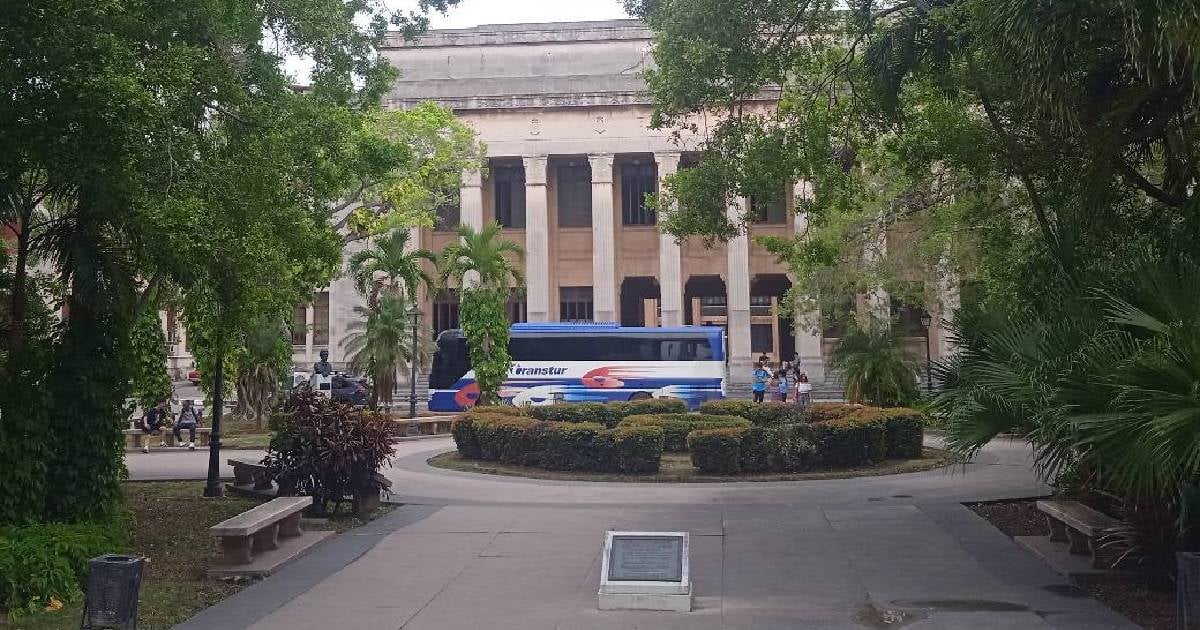Amid rising tensions at Cuban universities over the new rates imposed by the state-owned company ETECSA, José Alberto Almeida Cabrales, the Provincial Coordination Secretary of the University Student Federation (FEU) in Havana, confidently stated on Wednesday that student protests will not descend into chaos.
In a comprehensive statement shared on social media, Almeida advocated for consensus and structured debate within the universities. Although he emphasized that "no FEU Council from Havana's universities has decided on actions other than those aimed at dialogue," faculty council statements from the FEU itself support the academic strike and peaceful demonstrations, particularly at the Faculty of Mathematics and Computing (MATCOM).
"We are revolutionaries. We want peaceful solutions that include everyone. The FEU will never allow trivial disputes among its members," declared Almeida, seemingly addressing the growing student strikes and public statements from several faculties.
Almeida mentioned on Facebook that he has heard "a lot, a lot" from various perspectives on campuses, but stressed that his role is to represent the majority's will within the organization's formal bodies.
Meanwhile, the University of Havana's administration issued a statement warning it would not tolerate strikes and reaffirmed its loyalty to the Communist Party of Cuba (PCC). They also attempted to project an image of normalcy on social media by posting photos of academic events like pre-university graduations in the Aula Magna.
These images starkly contrast with accounts pointing to a tense, sparsely populated university environment. A report from CubaNet confirmed a notable drop in class attendance, the presence of alleged State Security agents on campus, and the suspension of academic activities for ideological lectures.
At a recent assembly at the University of Havana, students reiterated their decision to maintain the strike, citing ETECSA's lack of concrete solutions. The meeting, which included representatives from the state company, faced criticism for its restrictive format that limited participation from many faculties.
"We won't return to classes until there's a worthy proposal," a student asserted during the meeting, summarized on social media by the University Claim group. "We are not vulnerable; it's their measures that make us vulnerable," said another.
The student movement has not only challenged ETECSA's rates but also questioned the representativeness of official youth structures like the national FEU. In fact, Humanities students have called for the resignation of Ricardo Rodríguez González, the national FEU president and a member of the Council of State, due to his proximity to the government’s rhetoric and inaction on grassroots demands.
Despite efforts to channel the protest through controlled avenues, students declare the strike will persist until their genuine needs are recognized and addressed.
Key Questions About the Student Protests in Cuba
What sparked the student protests in Cuban universities?
The protests were triggered by the imposition of new rates by ETECSA, the state-owned telecommunications company, which students found unacceptable.
What is the stance of the FEU regarding the protests?
The FEU, through its leader José Alberto Almeida Cabrales, supports structured dialogue and consensus while acknowledging peaceful demonstrations and academic strikes as valid forms of protest.
How did the University of Havana respond to the student strikes?
The University of Havana's administration stated it would not tolerate strikes and reaffirmed its allegiance to the Communist Party, while attempting to portray an image of normalcy through social media posts.
